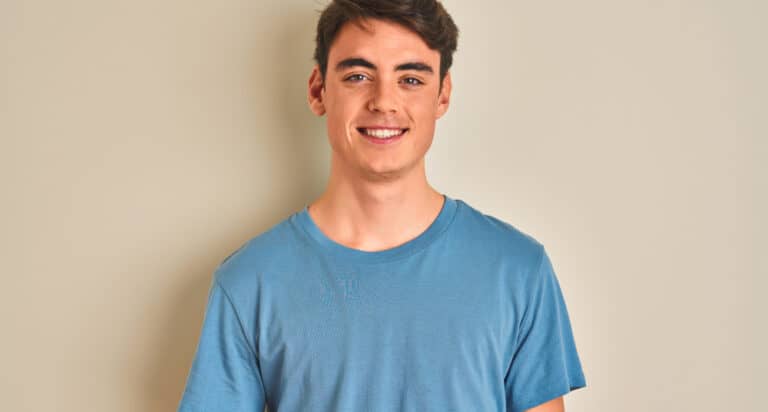
“Get out of my apartment!”
“I can’t be with you if I don’t know whether you are sober or not!”
These are some of the last words I spoke to my boyfriend four days before he died of a drug overdose in April 2016.
“I miss you a lot cause you’re so cute and adorable. … you are the love of my life, I just had to say it my heart told me to. Sorry.”
This was one of the last messages he sent to me. Along with, “I know I have a lot of work to do.”
How does one love an active drug addict? I don’t know. But I know what I did in my attempts to love him that didn’t work.
“Paint the red flags green.”
I heard someone use this phrase one time and I liked it because I identified with it. Every time something came up, whether it was a call from a drug dealer, an excuse about why he didn’t have any money, why my messages weren’t responded to for hours or a full day, his friends telling me he was high at a party, I believed his lies in defense of himself.
In reality, I wanted everything to be okay to the point where I pretended that everything was okay.
Not listening when he did tell the truth
Instead of hearing what he was saying, I completely shut him down and even responded with anger. I’ve found that when I am scared, my reaction is anger, and that’s what I did to him. One time he told me he had been thinking about smoking weed.
Innocent enough when talking to a heroin user, but it triggered so much fear in me that I didn’t have a conversation about it. I didn’t ask him what was going on, didn’t create a safe environment for him to tell me. I said he knew what that would lead to if he did it. Who wants to tell someone the truth when the truth brings punishment or neglect?
Wanting him to recover for “us”
I wanted so badly to be the couple we once were, before the drugs came into the picture. I wanted to laugh without suspicion, talk without caution, be intimate without fear of betrayal. I loved him so much that I didn’t love him at all, but now I loved him in the context of us. I didn’t love him at all, too, as in I didn’t treat him as such.
My fear blinded me from loving him as a person independent of me and our relationship. I didn’t set him free to do the healing and the truth telling he needed to, nor for me to do the same. By the time he passed away, I had wrapped my entire life around him, not even seeing myself as an individual outside of the relationship.
I didn’t know how to love him for everything that he was, both in active addiction and not. While I felt deep guilt for my mistakes, I know now that it’s okay. My hope is that, despite the great pain that his death brought me, the lessons our relationship taught me can sustain through the rest of my life.
I believe perhaps that the only way to prevent the experience from being for naught is to take it into everything I do moving forward, to treat others with kindness, to bring an embrace to the truth, to be slow to anger and slow to speak, trying always to listen with an open heart.
I hope to help others with this experience, to love selflessly, and to have my own full life. All of which takes patience and practice.
Related:
Parenting a Teen With Anxiety Disorder is The Hardest Thing I’ve Ever Done
National Drug Take Back Day: What Parents Need To Know

Victoria Kiarsis is a graduate of Emerson College where she studied Writing, Literature, and Publishing. She is currently working at a study abroad company and nannying while she applies to MFA programs for Creative Writing. She loves dogs, collecting vinyl records, and running. She has been published in blogs such as Emotionally Naked. Feel free to reach out to her here.









